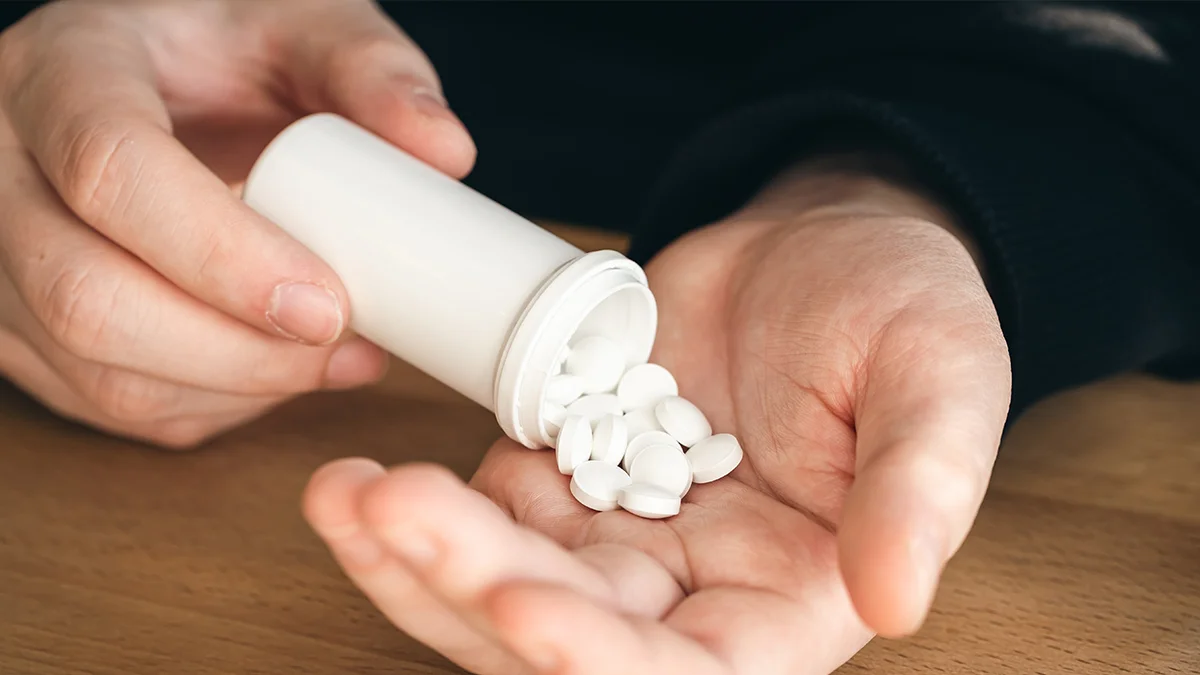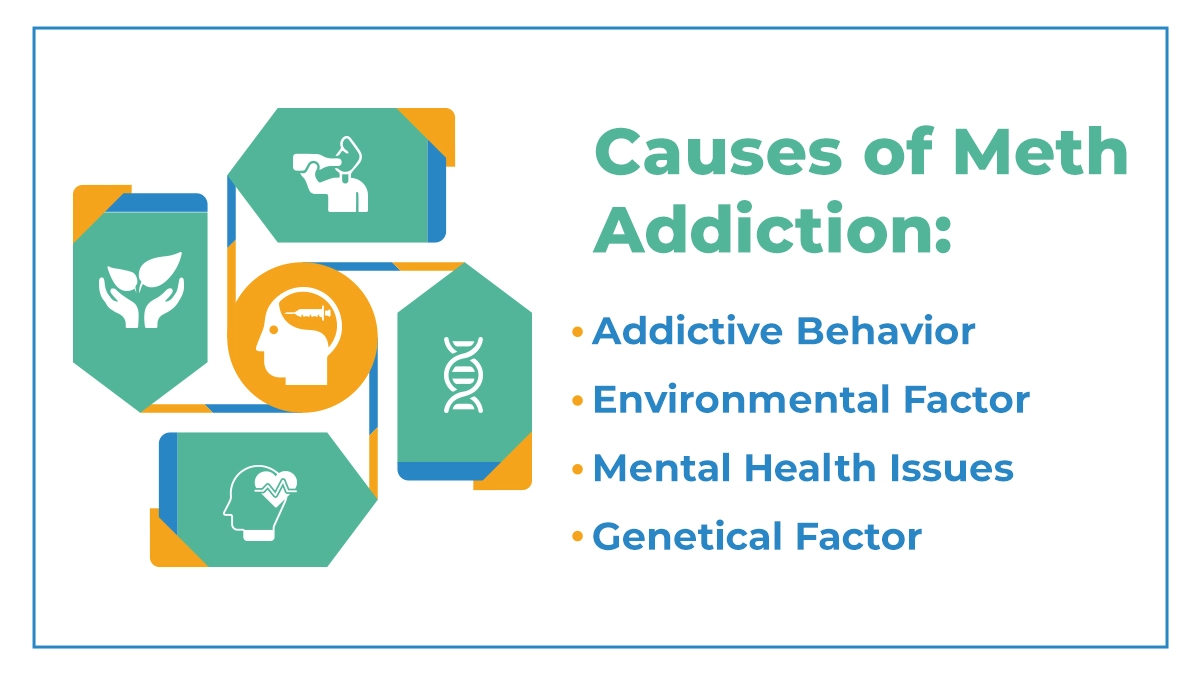
Using Tramadol To Manage Suboxone Withdrawal
Explore the role of tramadol in managing suboxone withdrawal symptoms with The Recovery Team-Newton.

Methamphetamine, commonly known as meth, can trap people in a cycle of addiction, but recovery is possible. It is a highly addictive stimulant. Meth addiction can lead to devastating physical and psychological consequences.
However, recovery is possible. The journey to overcoming meth addiction involves various treatment options, including counseling, therapy, and support groups. Keep reading to learn more about your options to treat meth addiction.
A treatment plan for drug addiction is crucial. The National Survey on Drug Abuse highlights the importance of medical treatment and rehab programs to combat addiction.
Treatment services for meth addiction encompass a spectrum of options. Inpatient rehabilitation, a comprehensive treatment approach, involves 24-hour care in a structured environment. Outpatient programs, offering flexibility, enable individuals to live at home while attending regular therapy sessions, typically suiting milder addiction cases.
Counseling and therapy play a pivotal role, with cognitive behavioral therapy (CBT) and contingency management addressing the psychological aspects of addiction, equipping individuals with coping strategies and relapse prevention skills. Support groups like Narcotics Anonymous (NA) and Crystal Meth Anonymous (CMA) create a sense of community, fostering long-term recovery.
Medication-assisted treatment (MAT) may be considered in some cases, using drugs such as bupropion or naltrexone to manage cravings and withdrawal symptoms. Mental health services are integrated into treatment as many individuals with meth addiction have co-occurring mental health concerns that require attention.
Aftercare is crucial to sustaining recovery. Holistic approaches, like yoga, art therapy, and mindfulness, promote overall well-being, and family involvement can strengthen the support system, contributing to a successful recovery journey. Tailoring these services to individual needs is vital, with healthcare professionals guiding treatment plans.
Methamphetamine, or meth, is a highly addictive stimulant. It is possible to recover from the meth addiction. Here’s what you need to know:
The Recovery Team-Newton provides comprehensive support for those battling addiction. Call us at (508) 978-2772 to explore the types of addiction treatment programs we offer.
Meth addiction is characterized by a range of behavioral, physical, psychological, and behavioral symptoms that can be distressing and harmful. These may vary in severity and presentation among individuals, but here are some common indicators:
Identifying these symptoms is crucial to seek professional assistance and get timely intervention. Meth addiction is a severe condition, and effective treatment is available to support individuals on the path to recovery.
Knowing when to seek treatment for meth addiction is crucial for regaining control of your life and well-being. Several signs and circumstances indicate the necessity of professional help.
If you find yourself unable to control your meth use despite a strong desire to quit, it’s a clear indicator that treatment is needed. The escalating tolerance that often accompanies meth addiction, more amounts to achieve the same effects, can be a dangerous red flag.
Experiencing withdrawal symptoms like depression, fatigue, and intense cravings when attempting to quit is another signal that it’s time to seek treatment. These symptoms can be overwhelming and hinder efforts to leave on your own.
Meth use can result in extreme physical and mental health issues, such as dental decay, skin problems, and cognitive impairment. When these issues become apparent, it’s crucial to seek medical attention and professional help.
Neglecting personal, professional, or familial responsibilities due to meth use is a clear sign that intervention is necessary to prevent further damage. Additionally, if your drug use leads to harmful behaviors like risky sexual encounters or illegal activities, it’s time to reach out for help.
When meth addiction strains your relationships and isolates you from loved ones, professional treatment can provide support to repair these bonds. Seeking professional help from The Recovery Team-Newton can increase the likelihood of a successful recovery.
When a loved one is caught in the grasp of meth addiction, your support is paramount. Start by extending a hand and engaging in a heartfelt, non-judgmental conversation. Let them know you’re there to navigate this storm together. Share stories of recovery and inspire them with the view of a brighter future.
Guide them gently toward professional treatment, exploring the avenues of rehabilitation and therapy. Remind your loved one that you are doing this out of love and not punishment. Offer to go to therapy with them or to help them pack for rehab. Listen to their concerns and work to dispel their fears of recovery.
Meth addiction, like many substance use disorders, arises from a combination of complex factors, often interwoven in an individual’s life. One significant contributor is the drug’s highly addictive nature.
Addictive Behavior: Methamphetamine alters the brain’s chemistry, leading to an intense euphoria that users find difficult to replicate with other experiences. This initial rush can create a mighty craving for the drug.
Environmental Factor: Exposure to a culture of drug use or living in areas with high meth availability can increase the likelihood of addiction. Social and peer pressure can also push individuals to try meth, especially when seeking a sense of belonging or acceptance.
Mental Health Issues: Mental health issues can be both a cause and a consequence of meth addiction. Some people turn to meth as a way to self-medicate or alleviate symptoms of depression, anxiety, or trauma. However, meth use can exacerbate these mental health issues over time.
Genetical Factor: Genetics may also contribute, as some individuals may be more predisposed to addiction due to their family history and genetic makeup.
It is crucial to understand these causes to develop effective prevention and treatment strategies.
Risk factors for meth addiction encompass a range of distinct elements that can make specific individuals more susceptible to developing this substance use disorder.
Family history plays a crucial role, as individuals with a family history of addiction may have a genetic predisposition that heightens their vulnerability. Childhood trauma, neglect, or abuse can also increase the risk, as these experiences may lead individuals to seek solace in meth or other substances.
Another significant risk factor is the age of first use. Starting meth at a younger age often carries a higher risk of addiction. Social and environmental influences, such as exposure to meth-using peers or living in areas with a prevalent drug culture, can be influential.
Mental health conditions, mainly if left untreated, may contribute to meth addiction. States like depression, anxiety, or attention-deficit hyperactivity disorder (ADHD) can increase susceptibility.
The lack of a substantial support system or social isolation can leave individuals more exposed to addiction. Preventing meth addiction requires early intervention based on identifying risk factors.
Methamphetamine use yields a host of profound and often devastating effects. Physiologically, it triggers increased heart rate, elevated blood pressure, and reduced appetite. These immediate effects can lead to severe weight loss and dental decay, often referred to as meth mouth.
Meth also induces intense, long-lasting euphoria, followed by a crash marked by depression and fatigue. Prolonged use leads to cognitive impairment, hallucinations, and severe paranoia.
Additionally, people who use meth frequently engage in risky behaviors, like unprotected sex, which can result in the spread of infectious diseases like HIV. The long-term impact of methamphetamine on both physical and mental health is profound, underscoring the urgency of addressing addiction.
Treatment for meth addiction typically involves a comprehensive approach, addressing the physical, psychological, and social aspects of the disorder. Components of meth addiction treatment involve:
Inpatient Rehabilitation: Inpatient programs provide 24-hour care, therapy, and medical support in a structured environment.
Outpatient Programs: These offer flexibility, allowing individuals to attend therapy while living at home, making it suitable for milder addiction cases.
Counseling and Therapy: Behavioral therapies like cognitive behavioral therapy (CBT) help individuals develop coping strategies and prevent relapse.
Support Groups: Communities like Narcotics Anonymous (NA) offer peer support and a sense of belonging.
Medication-Assisted Treatment (MAT): Medicines may be prescribed to manage cravings and withdrawal symptoms in medication-assisted treatment.
Aftercare: Continued support post-treatment, which may include therapy and support groups.
Getting professional treatment is the key to a successful journey. Recovery from meth addiction is a transformative path, and with the proper support, it’s possible to reclaim your life.
Methadone is not a standard treatment for crystal meth addiction, which falls under stimulant use disorder. Methadone is primarily used to manage opioid addiction. To address crystal meth addiction, an intensive outpatient program, inpatient rehab, or a specialized treatment facility is usually a better option.
These treatment plans consider the unique needs of each person with an addiction, providing emotional support and cure to manage cravings, address high blood pressure, and help the brain reset its reward system, supporting the recovery process. Experts typically recommend evidence-based therapies for stimulant use disorder, as methadone does not effectively treat this addiction.
Methamphetamine addiction, clinically referred to as methamphetamine use disorder, is a complex condition. Self-recovery is challenging and not typically recommended, as it can be dangerous, especially in the first few weeks.
Treatment programs, including medical detox and outpatient treatment, offer tailored treatment plans. These incorporate medications, individual therapy, and group therapy sessions, helping patients address substance abuse and severe depression.
Medical professionals and clinical trials play a crucial role in developing effective treatment strategies. Seeking help from a qualified treatment center remains the most effective approach for lasting recovery.
At The Recovery Team-Newton, we offer a range of innovative addiction treatment modalities.
In our intensive outpatient program, we harmonize individual therapy group sessions, crafting a flexible yet powerful approach. For those with milder addictions, our outpatient program provides the right balance of support and freedom.
With dual diagnosis treatment, we address co-occurring issues. And like a gentle breeze, medication-assisted treatment accompanies your recovery journey, soothing cravings and mastering withdrawal symptoms.
Your brighter future is just a call away. Call us at (508) 978-2772 and get the path to addiction recovery.

Explore the role of tramadol in managing suboxone withdrawal symptoms with The Recovery Team-Newton.

Explore the basics of insurance coverage for suboxone treatment in this guide from The Recovery Team-Newton.

Explore the effectiveness of medication-assisted treatment with The Recovery Team-Newton.